Fighting for others: Andy Howarth, founder of the Howarth Foundation, helping the homeless find work
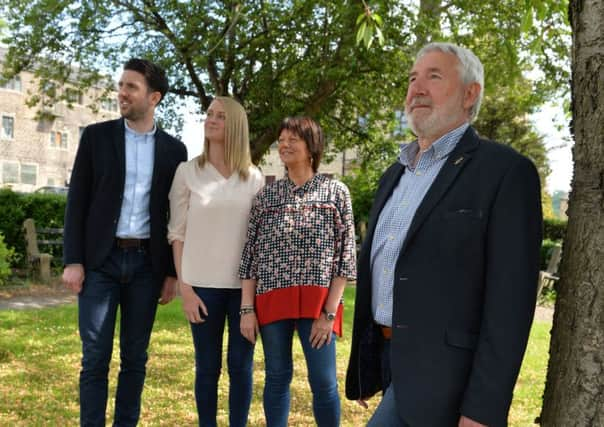

Sitting in a Caffè Nero in the shadow of the modern Central Square building in Leeds, Chris Sylvester looks just like any other patron. But, in stark contrast to the brightly lit slanted glass façade of Central Square, he has a dark past. Over the course of an hour-long chat Sylvester chronicles his life, which left behind a trail of misery for those closest to him and saw him spend time in prison.
He started taking heroin at the age of 12 and by 13 was registered with an addiction unit. His addiction began as a result of him not feeling “good enough”, despite coming from a home where “there was a lot of love”.
Advertisement
Hide AdAdvertisement
Hide Ad“I have a disease. It constantly wants me to fix how I feel,” he says.
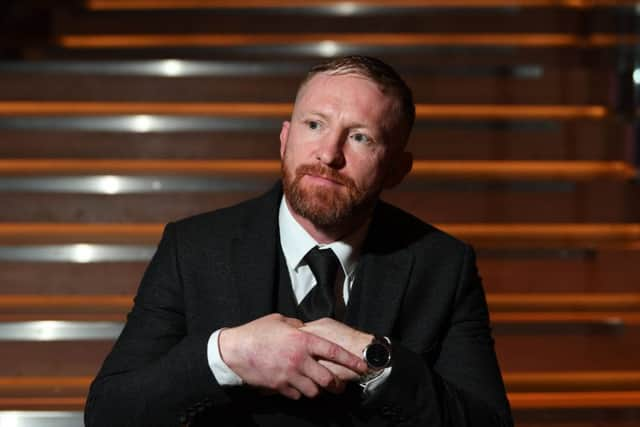

He describes how he repeatedly betrayed his mother’s trust, how his father tried to help him kick his habit after he was expelled from school, and how he went to prison the first time at the age of 16 for stabbing someone, fortunately not fatally.
After coming out of prison he started doing what he calls “kamikazes”: “Me and my friends would club together. We’d buy a car and then just drive all over the country shoplifting.”
Even the arrival of his second daughter didn’t halt his slide into crime and drugs, which now included crack cocaine, and he ended up homeless.
Advertisement
Hide AdAdvertisement
Hide AdBut now Chris Sylvester appears to have finally addressed his personal problems and turned his life around. He is an ambassador for the Howarth Foundation, which helps homeless people and recovering addicts find employment, and he is urging businesses to take a chance on people like him.
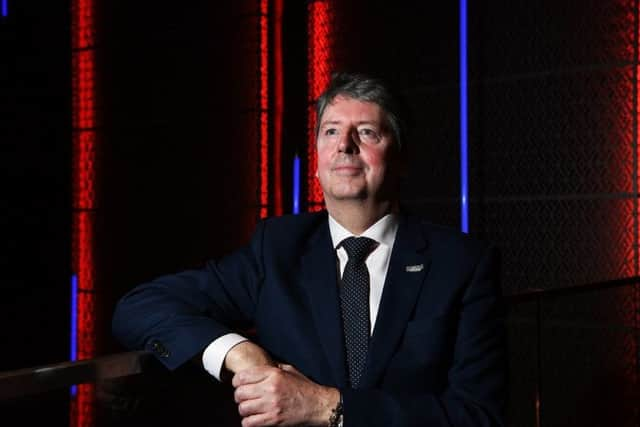

The Howarth Foundation identifies people who are ready for a second chance, and then helps businesses to hire them, using its extensive employment law and human resources (HR) expertise to look after any issues along the way.
As well as helping mentor Mr Sylvester, the charity has already placed several former homeless people and recovering addicts into jobs.
James Hill came to the UK from Bermuda in 2012. He left the British overseas territory to get help for a drinking problem.
Advertisement
Hide AdAdvertisement
Hide Ad“I had a successful business back in Bermuda and it collapsed and I got divorced – all at the same time,” he says. “I lost my wife, my business and my home and I fell into a deep state of depression.
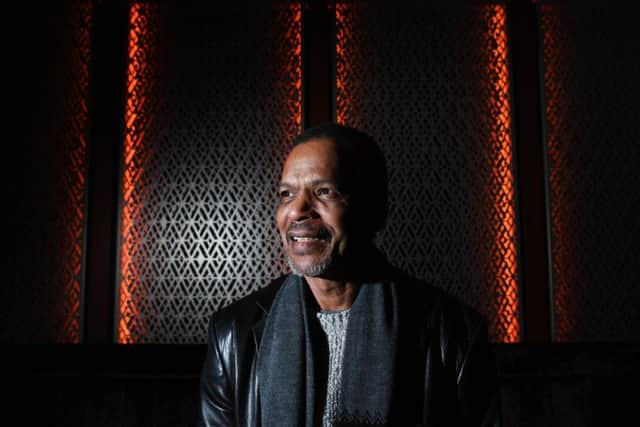

“I started drinking heavily, so a friend suggested that I come here to get help for my drinking.”
Mr Hill ended up in Birmingham and did charity work while staying with a friend. He moved to Leeds last year, but finding a job proved difficult.
“When I came here I didn’t know anything about National Insurance numbers or anything like that,” he says.
Advertisement
Hide AdAdvertisement
Hide AdBut a friend introduced him to Leeds homelessness charity St George’s Crypt, which just so happened to be hosting an event with the Howarth Foundation. The foundation put him in touch with Heckmondwike-based automotive parts supplier Complete Group. It transpired that Mr Hill had extensive experience as a machine fitter, even working for the Bermuda government before going into business as a carpenter.
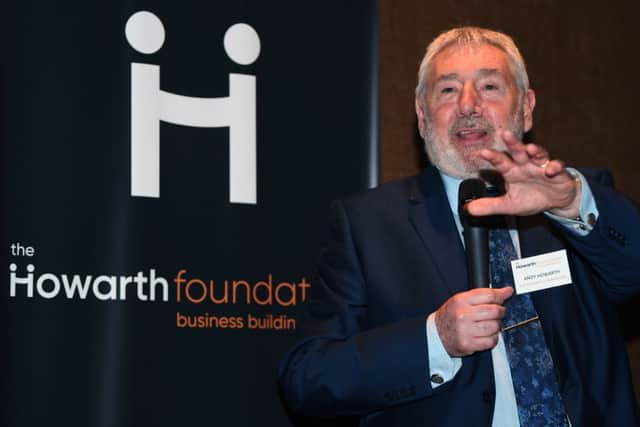

The Howarth Foundation helped put Mr Hill through training to gain the documents necessary to hold a job in this country.
Managing director Graeme Stocks says: “It’s definitely been a success, without a shadow of doubt. A lot of that is down to James himself.”
His advice to other businesses looking at hiring an ex-homeless person is to treat them the same way they would any other staff member.
Advertisement
Hide AdAdvertisement
Hide AdHe adds: “But be aware that you may need to have a bit more of an outpouring of love for that person in terms of helping them through some of the challenges. James didn’t come with any challenges but some will come with challenges.”
Another company that is giving formerly homeless people a chance is Leeds-based Ringways Motor Group. Over a year ago, managing director Stephen Russell took on Scott Mead. He says: “Scott was a lovely, lovely young man who’d lost his way over a period of four years. I could see that he had worked unbelievably hard to get himself to a point where he had dealt with his addictions and was ready to get back into work.”
The car dealership worked with the Howarth Foundation and Mr Russell is urging other firms to do likewise: “It is a commitment at a very senior level. You cannot delegate this responsibility to the normal infrastructure that a business has. They’re going to go through really difficult, challenging times during that first six to 12 months.”
Mr Russell himself would have weekly meetings with Mr Mead “on a personal level”.
Advertisement
Hide AdAdvertisement
Hide Ad“I wouldn’t normally do that with my employees but I knew that he was going to need that amount of support to start with,” he says.
The company has provided Mr Mead with warm cold-weather clothing, helped him move into accommodation, set up bank accounts and pass his driving test.
Ringways has a turnover of £90m and employs 165 staff, but despite the size of the company, Mr Russell maintains it is still a family. Altruism apart, there are also benefits for the company.
“The loyalty that I’ve seen from Scott has been unbelievable,” says Mr Russell. “He’s come in on weekends when he didn’t need to. He’s stayed late at night when we have had events. He’s offered to paint areas of the business, which would normally get outside contractors in for.”
Advertisement
Hide AdAdvertisement
Hide AdOver at Complete Group, the business is looking to fill two more positions through the Howarth Foundation.
Mr Stocks said: “If you have a business then I do believe you’ve got an obligation to do things in the community. I think it’s a shame if you don’t.”
For Mr Russell it is a chance that companies should take. “My message to businesses is don’t be frightened to embrace the opportunity,” he says.
In Leeds, Mr Sylvester is celebrating over 16 months of being clean. He works part-time at the St George’s Crypt, whose Growing Rooms programme has played a major role in turning his life around. The 37-year-old is working hard to make amends and wants to become a positive role-model to his two daughters.
Advertisement
Hide AdAdvertisement
Hide Ad“The only education I left school with was how to take drugs,” he says. Now he is back at college taking English, Maths and IT.
His goal in life is to one day set up his own self-development business helping people overcome their problems and fears.
He still has “using thoughts” but Mr Sylvester is taking it one day at a time. “That’s all I can do,” he says.
Issues that have personal meaning
The Howarth Foundation was set up by Andy Howarth and his wife Helen in 2017.
Advertisement
Hide AdAdvertisement
Hide AdMr Howarth founded the charity after deciding to take a step back from the day-to-day running of the employment law and HR firm he founded in 2003, handing over the reins to his son Gavin Howarth.
The issue of homelessness has particular resonance for the former police officer.
“I didn’t enjoy my teenage years and looking back if I had the courage I would have left home,” Mr Howarth says. “Sometimes during the darker times of my teenage years homelessness seemed to be a better option than the situation I was in at that time.”
He is being helped by client development manager Natalie Wells in running the charity.
Advertisement
Hide AdAdvertisement
Hide AdLast year, the chairman of Howarths Law was diagnosed with bowel cancer.
Mr Howarth says: “If I’m going to sit at home feeling sorry for myself then no-one is going to benefit.
“The people that I am working with have got massive issues of their own – they’ve gone through donkey’s years of almost purgatory – so cancer to me is no worse, no less than what they’re going through.
“My only wish is that I could get more people engaged in helping those who are ready to be helped.”
For more information about the Howarth Foundation, visit www.howarthfoundation.org.uk